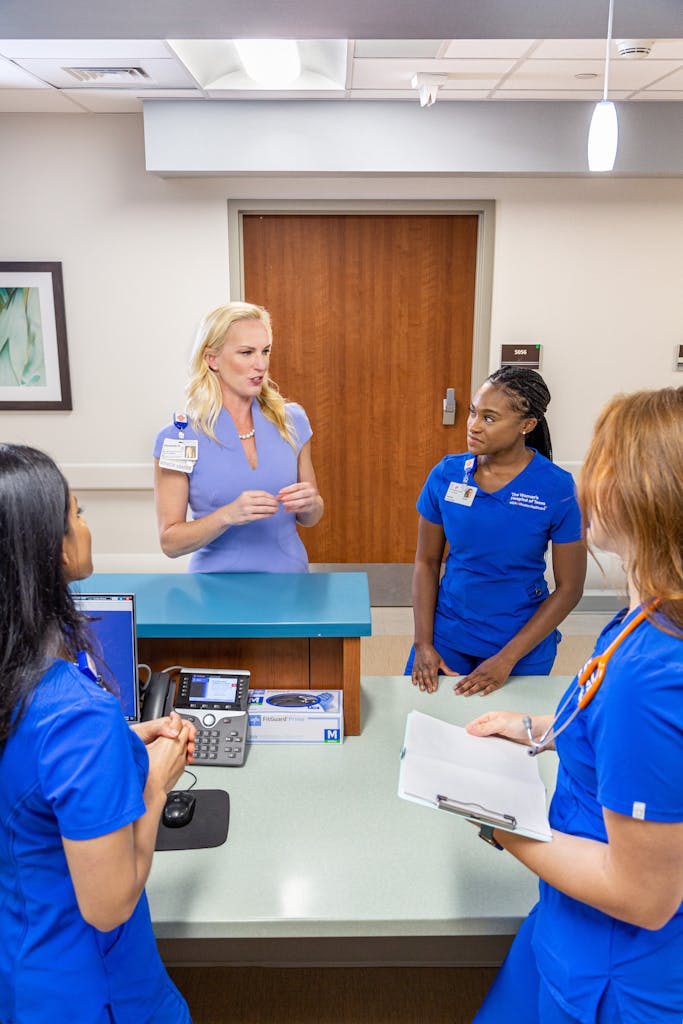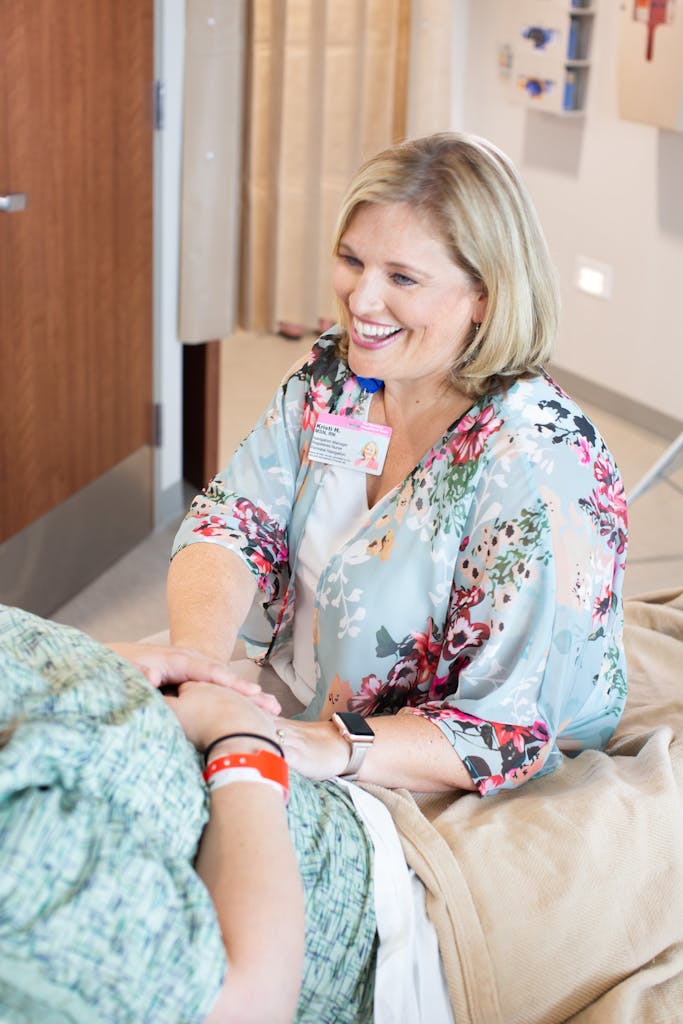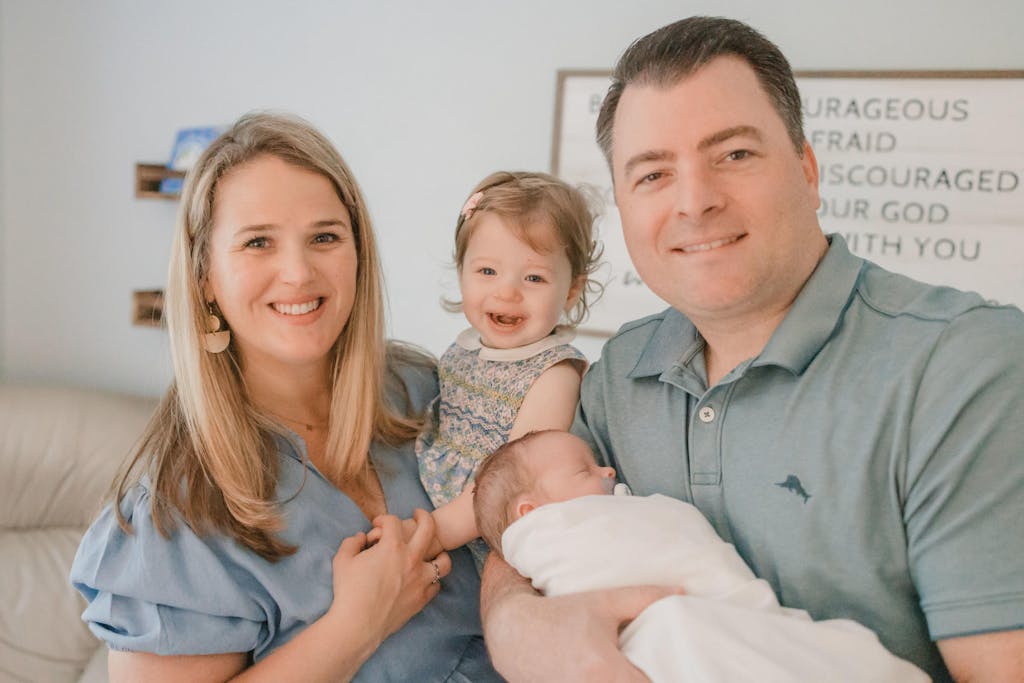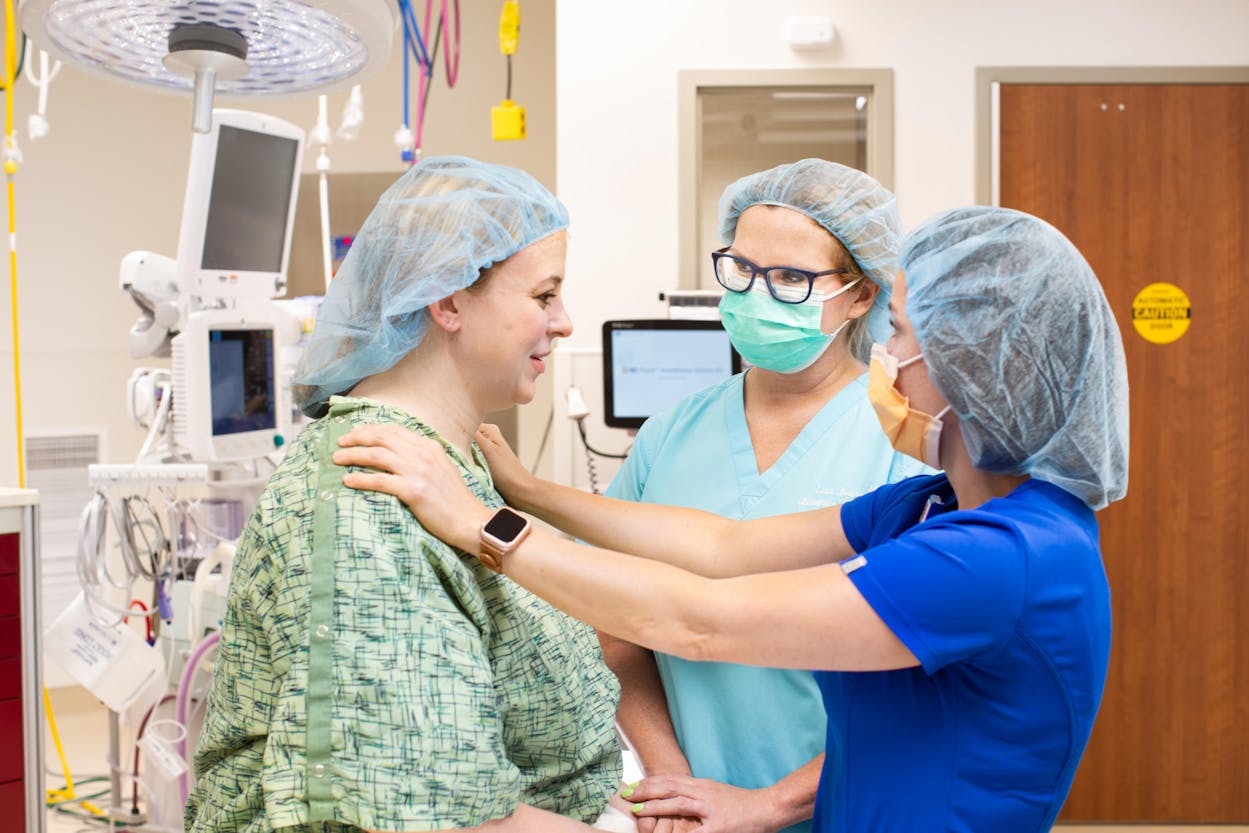Early in 2018, Sara Paradoski had one of the most difficult days of her life. The expectant mother was at home with her husband when the couple got a call from her doctor. Since Paradoski, who was three months pregnant at the time, was older than most women having their first baby, she had recently had some extensive blood work done. Now the results were in: Paradoski had a positive predictor for Trisomy 18, a condition that causes severe developmental delays. Most of the babies born with Trisomy 18 die by the time they reach their first birthday. Roughly half are stillborn.
“It was devastating,” Paradoski says.
That fateful call kicked off a series of meetings with specialists and doctors that, a few months later, led her to The Woman’s Hospital of Texas. The Houston-based HCA Houston Healthcare facility delivers roughly 11,000 babies a year—that’s a staggering thirty babies per day.
“I knew they dealt with a lot of moms in different situations,” she says. “It was the best possible place with the best possible care.”
Right after she met Paradoski, the hospital’s Kristi Hardy, MSN, RN, got to work assembling a team.
Hardy manages The Woman’s Hospital of Texas Maternal Fetal Care Center and is a perinatal nursing navigator, a specially-trained nurse who helps expecting mothers navigate the challenges of pregnancy and childbirth. Working alongside her team, Hardy provided the skilled, compassionate care for which The Woman’s Hospital of Texas is known. That team was especially vital once the diagnosis was confirmed: Paradoski’s baby girl, Charlotte, had Trisomy 18.
“I didn’t know what was going to happen,” Paradoski says. “But right away, I knew Kristi was my lifeline.”
The nurses, nursing navigators, physicians, and specialists at The Woman’s Hospital of Texas have been caring for Houston women, babies, and families for 45 years.
The hospital also has a unique specialty: at-risk pregnancies. The Woman’s Hospital of Texas Maternal Fetal Care Center helps families navigate pregnancies complicated by everything from cancer to autoimmune disorders, trauma, and silent, invisible conditions that no parent would ever imagine.
“Our team walks families through every single factor that can complicate a pregnancy,” says Dr. Lisa Beard, OB/GYN and chief of medical staff. “At the same time, we’re developing an extra-special connection with our patients.”

That “extra-special connection” is a key tenet of the care provided at The Woman’s Hospital of Texas, and it’s practically embedded in the hospital’s DNA. The name of the hospital (Woman’s instead of Women’s) was explicitly chosen by its founders to honor each patient as an individual.
“I tell all of my colleagues in orientation, ‘This is a serious business: You have to bring your head to work, but you also have to bring your heart to work,’” says Elizabeth Ortega, the hospital’s chief executive officer. “We recently had a patient who stayed with us one hundred nights, and it was the same passionate care on night one hundred as it was on day one: We want all families to know they will get the best care possible for the entirety of their stay, especially single moms, same-sex partners, and mothers typically shut out of the pregnancy conversation.
“It’s the caring, the true connection, that makes what we do so special,” Ortega adds.
That care starts with listening. Nurses at The Woman’s Hospital of Texas listen intently to their patients, talking through all of their pains, concerns, and worries to ensure the care they receive is as holistic as possible. That care also includes staff members like Kristi Hardy.
A former obstetric nurse, Hardy was inspired to become a nursing navigator after she was diagnosed with breast cancer in 2015. “There are so many tests and doctors and decisions to make,” recalls Hardy. “I met with a nursing navigator, and she literally held my hand while introducing herself and walking me through the journey I had ahead of me.” When she later heard about the position that would become her job, she realized it was fate.
“When you’re going through your life and dreaming of being a mom, you never think you’re going to get a diagnosis that labels you ‘high-risk.’ I want to be there to hold those moms’ hands,” says Hardy, who is now five years cancer-free.

Hardy’s team captures the essence of The Woman’s Hospital of Texas. It’s a multi-disciplinary unit that includes a neonatologist, a NICU nurse, a social worker, a lactation consultant, and any other specialists the team deems necessary. Together, this team works with their heads and their hearts, providing comprehensive care to thousands of Houston mothers, yet making each one feel as if they are Hardy and her colleagues’ only patient. Of course, Hardy’s work often involves tough, emotional conversations and heartbreaking journeys for mothers and fathers alike. But she never feels alone.
“Every single person who works here at The Woman’s Hospital of Texas has a ‘why’ for what they do,” she says. “When you are part of a team that is so committed and so compassionate, you know you’re never holding any burdens by yourself. The patient should never feel alone, and neither should any staff member.”
It’s important to note that the bonds forged at The Woman’s Hospital of Texas —bonds between colleagues as well as bonds between staff members and patients—often extend far beyond the hospital’s walls. And when a loss occurs, their work is really just beginning.
“This is a serious business: You have to bring your head to work, but you also have to bring your heart to work. It’s the caring, the true connection, that makes what we do so special.”
Elizabeth Ortega, CEO, The Woman’s Hospital of Texas
In the early morning hours of a September morning, Paradoski was ushered into a delivery room. By that point, she knew what would happen: Charlotte was going to be a stillborn baby. She was surrounded by friends, family, and Kristi Hardy, who, in Paradoski’s words, “helped everyone understand what I needed at that moment.”
From placing Paradoski on a unit far away from the sounds of babies crying to giving her extra time with Charlotte with a Cuddle Cot, a cooling device disguised as a bassinet, staff anticipated what the grieving mother needed. The team at The Woman’s Hospital of Texas also curated a special memory box for the family: Inside the box, one can see two tiny footprints from Charlotte.
Roughly a year later, the Texas teacher learned that she was pregnant once again. She had no doubts about returning to The Woman’s Hospital of Texas.
“The nurses just do things differently there,” she says. “They know everything they need to know for tragic situations, but they treated me like normal. Keeping things as normal as possible helped me stay calm and not obsessively worried.”

With help from the team at The Woman’s Hospital of Texas, Paradoski gave birth to a happy, healthy baby girl. A year later, she gave birth to her third child, a son. Nowadays, when she’s not in the classroom or spending time with her children, Paradoski pays it forward. The mom hosted a golf tournament to raise money to purchase Cuddle Cots and special boxes for women who endure a loss, like she did.
“I will always be grateful for Kristi Hardy and everyone at The Woman’s Hospital of Texas,” she says.







